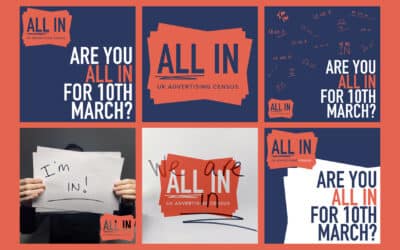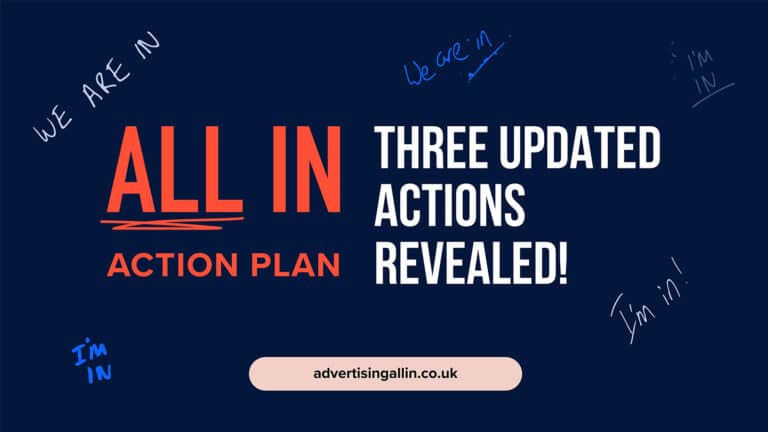The UK Advertising industry has come together in Manchester to announce a series of new actions to increase diversity in the sector.
The industry’s All In Census was launched in 2021, then described as a “stop the clock” moment for advertising as it sought to be more inclusive.
Today’s update at the LEAD North summit in Manchester follows the 2023 All In Census, which had its largest-ever response, with over 19,000 people. It also tracked data from the inaugural survey.
“The 2023 All In Census results highlighted that the All In Action Plan is still just as important today as when we launched it in 2021. Progress has been made, but there is still more work to be done,” said Kathryn Jacob OBE, Chair of the Inclusion Working Group and CEO of Pearl & Dean, said:
“The road to inclusion is complex and ever-evolving, and that is reflected in the updates to the All In Action Plan. Our objective is to continue to promote, encourage, and advocate for better representation, inclusion, and equity in UK advertising’s workforce”.
The original 8-step action plan was introduced in 2021 and covers Gender, Asian talent, Older talent, Mental Health, and LGBTQ+ talent. The 3 new updates focus on actions around Black talent, Disabled talent and talent from Working Class backgrounds.
Action 1 was for companies to invest in a sponsorship programme, “whether internal or external” to showcase how they are attracting and retaining Black talent within their organisation.
According to the 2023 All In Census, just 2% of Black respondents were in C-suite positions. 31% of Black respondents also reported that they felt undervalued compared to colleagues of equal competence.
“The latest All In Census highlighted that the work and career environment for Black talent is still comparatively negative, resulting in poor retention and impairing progression – factors which are key to ensuring long-term sustainable inclusion and representation,” said Ete Davies, Chair of the Black Talent Working Group and Chief Operating Officer, Dentsu Creative, EMEA & UK.
“Sponsorship is an evidenced central strategy to counteracting the systemic and cultural biases and inequities that exist in organisations which impair the progression and mitigate the attrition of Black professionals.”
The second action was for agencies to ask staff or visitors if they have any accessibility needs.
Data revealed that for 39% of disabled people, their company was unaware of their disability/health condition. Of those whose company were aware, 53% felt their company was very supportive, 28% felt their company was supportive but could do more, 13% neither supportive or unsupportive, and 4% unsupportive.
“The data tells us that too many disabled people fear disclosing their disabilities because they think it will harm their career development,” stated Danny Josephs, Chair of the Disability Working Group and COO and Client Lead, MFUSE.
“We want to normalise the conversation around disability by always asking the question ‘Do you have any accessibility requirements?’– our aim is that it becomes as ubiquitous as the question ‘Do you have any dietary requirements?’”
Finally, the third action is to adopt the new Early Careers Social Mobility toolkit.
The census showed that working-class professionals continue to be underrepresented in the UK advertising industry (20% compared to the national average of 40%). Those from fee-paying schools were also overrepresented in the industry.
“We are passionate about the need to increase working-class representation in the industry, understanding that it’s one of the more complex areas in which to make a difference – as shown by the limited changes we’ve seen since the original action plan was first launched in 2021,” added John McGeough, Chair of the All In Social Mobility Working Group and Commercial Operations Director, Global.
“A focus on early careers and how we recruit, train and support those working class talent is the most effective way to make a difference.”











